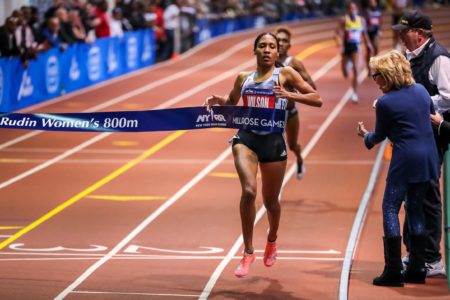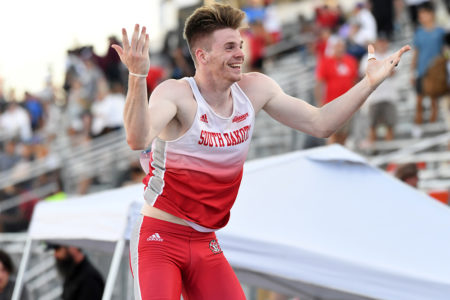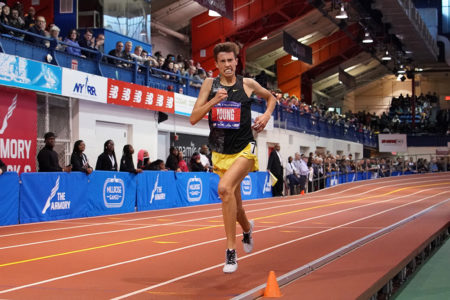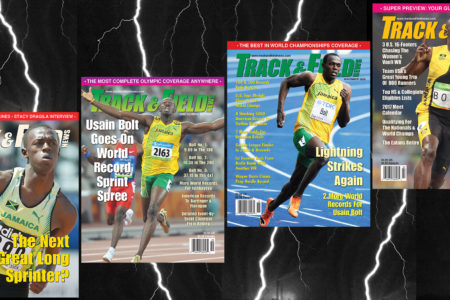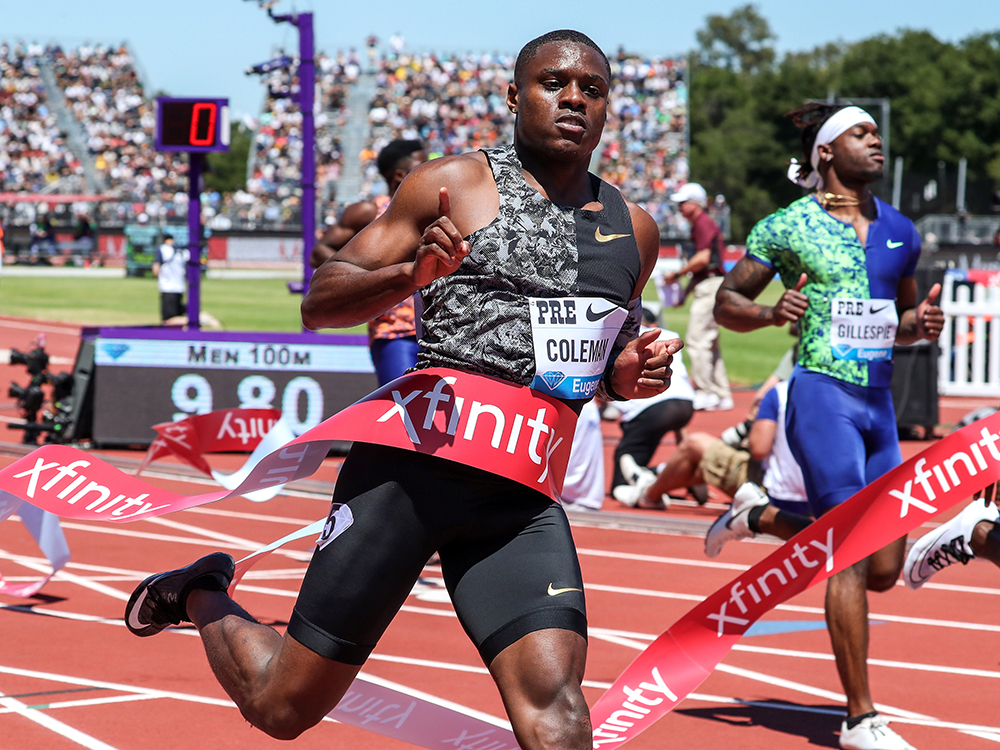
The first in a series of profiles we’ll be posting over the next few days as part of our Olympic Trials Men’s 100 Preview.
FAVORITE. Christian Coleman bears no grudge against the word but he doesn’t want to wear it. Neither for the Olympic Trials 100 in June, nor for the Games in Tokyo some 6 weeks later. Not even with no less an authority than Usain Bolt, WR-holding winner of the last three Olympic short dashes, having recently declared, “From my standpoint right now, Christian Coleman has got the Olympics won already.”
The OT century battle always plays out as one of the fiercest in sport, and Coleman brooks no thought of declaring it won whether from 3 months out or a millisecond before the final’s gun fires. “I think everybody has a shot,” says the sprinter whose commanding win at the World Championships in Doha last fall impressed Bolt so much.
“If you registered for the meet, you ran a qualifying time to be able to get into the meet, everybody has a shot. And I look at myself as just the same as everybody. I’ve got to go there and get it done, no matter if I’m getting a lot of media attention, or no matter who they’re trying to say are the favorites or the underdogs.”
In his early-February comments, Bolt went on to say of Coleman, “He’s fearless. He’s really fearless.” That word, Coleman, the defending U.S. champion, is happy to wear. He says, “If I had to describe it, I don’t know, it’s just being like a savage, you know what I’m saying? Just not backing down from any challenge, not being afraid of anything. I mean it’s track & field so obviously you win some and you lose some races but when you lose races you can’t let that determine your next race, you can’t let that defeat you.
“I feel like it’s a difference in losing and being defeated, and I just feel like I have the most confidence in myself that, no matter what happens, no matter what’s at stake, if I’m healthy and I make it to that final on the line I have a pretty good shot. I think that that just comes with my preparation. I think it’s not something that you can just turn on on race day. It’s something that just has to be a part of your everyday regimen of being a competitor and going out there and just wanting to be the best.”
While Coleman, a lightning starter, can’t help but feel good that his single-meet indoor campaign in the Olympic year saw him blast through a pair of 60 prelims at the USATF Indoor followed by an =No. 2 all-time 6.37 win in the final. “I mean it was alright,” he says although no other man has ever put up a faster time (see sidebar).
“I think I was kind of prepared for it,” Coleman says. I mean, you know, we haven’t done a lot of speedwork, but we had done blocks and done sprints and stuff like that in practice. I felt comfortable enough to go out there and compete. I feel like I kind of just knew what to expect and so I wanted to go out there and kind of just get a break in my training and I felt alright. I feel like if I had another meet—you know, besides that one, since that was my opener—like I could have maybe run faster but I was kinda satisfied with the circumstances.” (Continued below)
Take note of the 23-year-old Tennessee alum’s next comment: “I feel like I’m in much better shape and I feel a lot better than I did last year and even in 2018 when I set the [60 World Record]. But I guess when I set the record I had a full indoor season and that was kinda the focus, to run fast indoors, and that hasn’t necessarily been the focus this time around.”
The focus, of course, for Coleman and coach Tim Hall is first the Trials and then, fate willing, the Games. “I love those moments,” he says. “I think that’s what you participate in the sport for, being able to compete against the best at the highest level, in the biggest moments. I think that’s one of those types of situations that I love to be in, you know, that I think about time and time again in practice. When I’m working hard I’m not just preparing for the regular season meets or the meets that lead up to those big moments. You’re preparing and doing everything and running in those meets to get to that type of high intensity. High-level matchups, that’s what you’re preparing for.”
In an Olympic Trials such summit meetings come with rounds. Coleman’s philosophy on the heats and semis, he explains, is “don’t go out there to try to make statements or race anyone in particular or anything like that. You kind of just take it one round at a time, making sure that you’re locked in and focused on what you need to do in that round. And the ultimate goal is to do just enough, make it to the next day, make it to the next round so that you have as much left in the tank cause you need to try to get a victory in the finals.”
What time might it take to win in Eugene? “Man, I have no idea,” he admits. “Every meet has been different. At the London World Championships I feel like I was at my best, and the winning time was 9.92 [Justin Gatlin ahead of Coleman’s 9.94]. So you just never know. I think that all you can ask of yourself is to go out there and compete to win. I feel like that’s always been my mindset. Once you get used to competing at your best and trying to stack up wins that just becomes part of your résumé. You make it through the rounds and try to get the victory and whatever time comes through that, you know, it is what it is. But obviously I think it’ll be something fast.
“A lot of good, world-class guys are going to be on that line so it’ll be exciting, man.”
